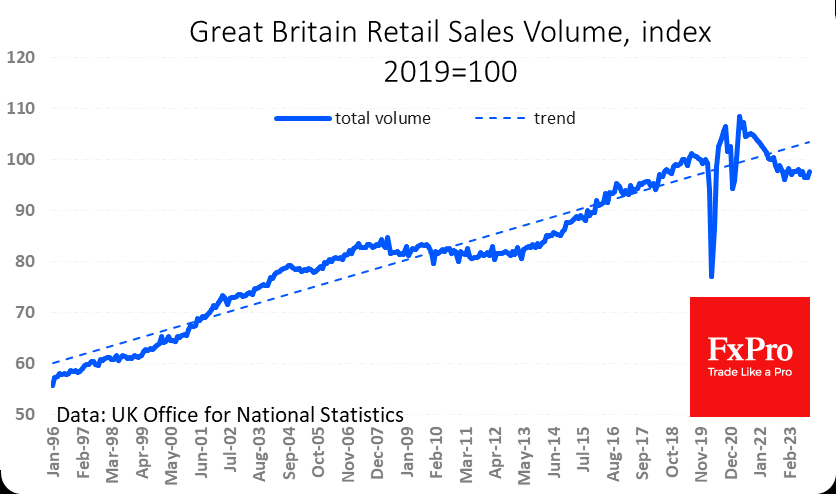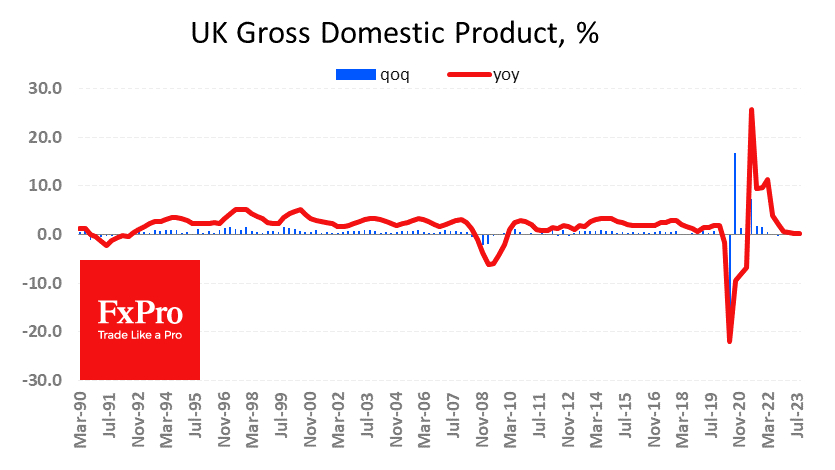Fresh data from the UK painted a mixed economic picture, but the market, in line with the trends of recent days, paid attention only to the positive data.
The bright side was a 1.3% increase in retail sales for November instead of the expected 0.4%. This jump took the index into positive territory versus last year with a minimal +0.1% y/y. Sales excluding fuel are up 0.3% y/y. The pound rose a quarter of a cent to 1.2710, bouncing back from better-than-expected statistics. That's the end of the positive news.
The nominal retail sales index has been stagnating for the last fifteen months, which does not allow us to talk about a recovery in demand but only about its retention. The deviation from the long-term trend is comparable to the prolonged stagnation following the global financial crisis.
According to the final estimate, UK GDP lost 0.1% in the third quarter and is only 0.3% higher year-over-year (0.6% was expected). The economy contracted due to a decline in personal consumption (-0.4% QoQ). However, the deep balance of payments deficit played a role in the negative revision.
A fall in CBI sales estimates was also reported a day earlier. The indicator fell from -11 to -32, much stronger than the expected -13.
Fundamentally, the UK economy is more in need of an interest rate cut than the US economy. However, GBP/USD has been adding since November as traders in the markets primarily speculate around a US monetary policy reversal, selling the dollar, while data from Europe only affects the markets briefly after the release.
The FxPro Analyst Team
